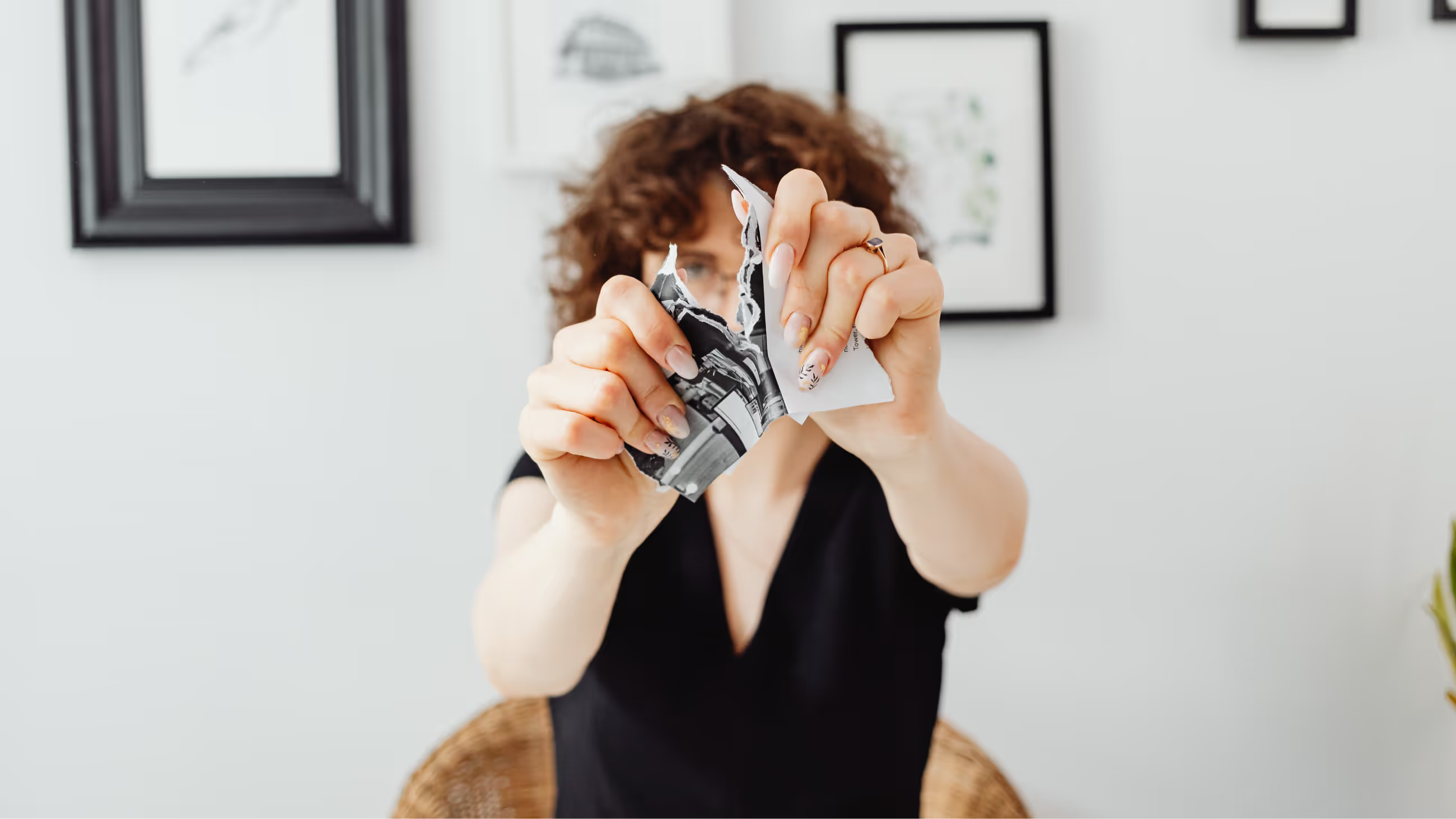How is impulsivity controlled? A complete approach with exercises and practical tips

Have you ever felt that you act thoughtlessly? 🤔 In the course of our day to day we are constantly confronted with decisions to make. Some of these decisions involve some consideration, however, others are virtually instantaneous.
Who has never made an impulse purchase or said something without thinking about the consequences? The truth is that impulsivity is a human behaviorthat we all experience at some point in our lives.
Thus, impulsivity raises important questions about the control we have (or do not) have over our own actions. We are rational beings, but a small stimulus is enough for rationality to be called into question.
👉 But after all, what is impulsivity really and to what extent does it influence our lives?
What is impulsivity?
Aimpulsivityhas been defined as taking swift action without prior conscious deliberation or judgment.
📖 A study on The Psychiatric Aspects of Impulsivitymentions that impulsivity, according to Patton et al.is divided into three components:
- Decreased sensitivity to the negative consequences of a certain behavior;
- Prompt and unplanned actions to the stimulus before the complete processing of information;
- Lack of consideration for long-term consequences;
We can better understand this last point by analyzing the experiment carried out by Walter Mischel in the 1960s: (a) Marshmallow Experience. This experiment helps us to understand the concept of Inhibitory control- the ability to inhibit an immediate, impulsive and automatic reaction (in this case, eat the marshmallow) to create a rational response (wait for a greater reward).
But what is it like to be an impulsive person?
💭 Be one impulsive personis to act without considering the consequences, that is, the person is moved by the present moment. It is someone who makes, for example, an expensive purchase on impulse, who interrupts a conversation because he feels the need to express himself immediately, or who sends a message in a moment of anguish without thinking twice.
Impulsivity can manifest itself in situations of day by day, how to accept an invitation without checking the agenda, but also in most important decisionshow to change jobs or end a relationship suddenly.
Often these impulses are difficult to control and the person only realizessubsequently which should have acted differently.
How is impulsivity controlled?
Impulsivity can be Significantly controlledthrough psychological treatments, behavioral strategies and, in some cases, medication. Through appropriate intervention,it is possible to gain greater self-control and make more informed decisions.
Techniques for Controlling Impulsive Behaviors
Controlling impulsivity is a process that requires practice, awareness and persistence. It is not a question of completely eliminating impulses, because they are part of the human nature, but to develop the ability to choose more appropriate responses.
💡 So, there are some exercises to control impulsivity:
Technique of “Stop, Think, Act”
It aims to develop the habit of reflecting before acting. It consists of taking three small steps when you feel an impulse:
🔸 Stop - Take a deep breath and interrupt the action;
🔸 Think - Analyze the situation. Reflect on what you are feeling and what will be the consequences of this same action?
🔸 Act - Make a decision based on the previous steps.
Conscious Breathing Exercise
It aims to reduce emotional reactions and calm the nervous system. For this, it is important that you look for:
🔸 Sit comfortably;
🔸 Inhale through the nose counting to 4;
🔸 Hold your breath for 2 to 4 seconds;
🔸 Exhale slowly through the mouth counting to 6;
🔸 Repeat the previous steps for 2-5 minutes.
Diary of Impulses
It aims to identify patterns and promote self-awareness. This exercise consists of describing your impulses daily by answering the following questions:
🔸 What happened?
🔸 What do you feel?
🔸 How did you react?
🔸 What was the result?
🔸 What could I have done differently?
Over time, you may become able to understand the triggers for your impulsive behaviors and better anticipate certain situations.
Visualization Technique
It aims to anticipate scenarios and prepare more balanced responses. To do this, it is important that you follow the following steps:
🔸 Start by imagining a situation in which you usually act impulsively;
🔸 Visualize yourself facing with calm, control and clarity;
🔸 Repeat this visualization regularly.
This technique manages to train the brain more consciously before the situation actually happens.
Establish a “Waiting Time”
Last but not least, this exercise aims to avoid hasty decisions, especially in intense emotional situations. It consists of:
🔸 Give yourself a space of time be it 10 minutes, 1 hour or 1 day;
🔸 During this period of time, try to get away from thoughts about the specific situation and only after that time, focus on it again.
👉 Impulsivity is often associated with changes in brain waves,especially in frontal lobe area— area responsible for executive functions, impulse control, attention and self-regulation. To understand this behavior, it is essential to look at its origin: o cerebrum.
O Neurofeedback, which is the basis of our intervention, allows to regulate brain activity in a non-invasive way. With this regulation, it is possible to significantly reduce impulsive behaviors.
As a complement, we use the techniques mentioned above within the scope of Cognitive-Behavioral Therapy, used in our inquiries of Clinical Psychology, which enhance results over time.
What diagnoses are associated with impulsivity?
Although impulsivity is a very present condition in PHD, - according to a study published in Journal of Clinical Medicine (2024) - this is not exclusiveof this diagnosis and can manifest itself in several conditions related to mental health. 🧠
SecondMoller et al. some clinical conditions have been strongly associated with impulsivity:
PHDA (Attention Deficit Hyperactivity Disorder)
👉 Studies have analyzed human behavior in the laboratory concluding that PHDA is associated with high levels of impulsivity. These levels of impulsivity are found to be related to the function of dopamine - a neurotransmitter that plays an important role in the brain - which has implications in the treatments of this disorder.
Anxiety Disorder
👉 What it's about Anxiety Disorder, impulsivity is also present. A study on Impulsivity in Anxiety Disorders: A Critical Review,concludes that there is a relationship between anxiety and impulsivity especially in people with a tendency to behavioral disinhibition.
Borderline Personality Disorder
👉 Impulsivity is one of the central traits in Borderline Personality Disorder. The difficulty of dealing with intense and unstable emotions contributes to these types of reactions without prior reflection.
Antisocial Personality Disorder
👉 Impulsivity is a frequent component of Antisocial Personality Disorder, however, the degree of impulsivity can vary from person to person. Studies suggest that there are clear differences between individuals with antisocial personality who have a pattern of impulsive (especially aggressive) behaviors and those who do not exhibit this type of impulsivity.
Bipolar disorder
👉 Although there are few studies that have directly measured impulsivity in Bipolar Disorder, there seems to be an association between the diagnosis and impulsive behaviors that go beyond episodes of mood alteration. In addition, it is not yet clear whether inter-episode impulsivity is a risk factor for the development of the disorder or whether it is a consequence of experience accumulated over multiple episodes.
Conclusion
👉 Impulsivity it is part of the nature of the human being, however, we need to have the discernment to understand when it starts to be detrimental to our well-being.
If you feel that impulsivity is somehow impactsome area of your life - personal, professional or emotional - is important seek professional help. This can be the first step in regaining your control.
NeuroImprove Clinic has a team of professionals ready to help circumvent any difficulty. Enter contact usto find out more - know that you are not alone on this journey.
References
F. Gerard Moeller, MD, Ernest S. Barratt, Ph.D., Donald M. Dougherty, Ph.D., Joy M. Schmitz, Ph.D., and Alan C. Swann, M.D. (2001). Psychiatric Aspects of Impulsivity. The American Journal of Psychiatry, 158, 11. doi: https://doi.org/10.1176/appi.ajp.158.11.1783
Franczak, L., Podwalski, P., Wysocki, P., Dawidowski, B., Jedrzejewski, A., Jabloński, M., & Samochowiec, J. (2024). Impulsivity in ADHD and Borderline Personality Disorder: A Systematic Review of Gray and White Matter Variations. Journal of Clinical Medicine, 13 (22), 6906. doi: https://doi.org/10.3390/jcm13226906
Jakuszkowiak-Wojten K, Landowski J, Wiglusz MS, Cubala WJ. Impulsivity and anxiety disorders. A critical review. Psychiatrist Danub. 2015 Sep; 27 Suppl 1:S452-5. PMID: 26417814.
We Train Brains, Strengthen Minds, Transform Lives
Schedule an appointment and see how we can help your family.
No time for a call now? Leave your details and we will get in touch:

Wonderful team, concerned, attentive and always available to help in everything.
With the passage of time, the results are being verified.
I am grateful to have met Neuroimprove and all its professionals.





